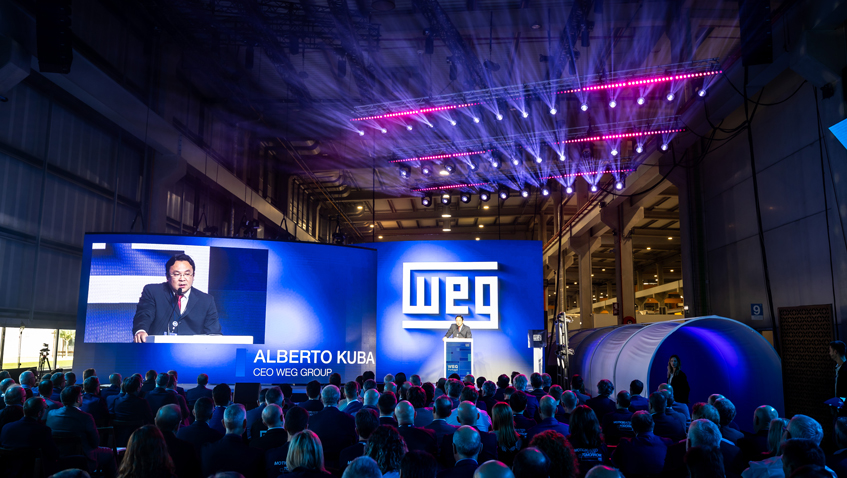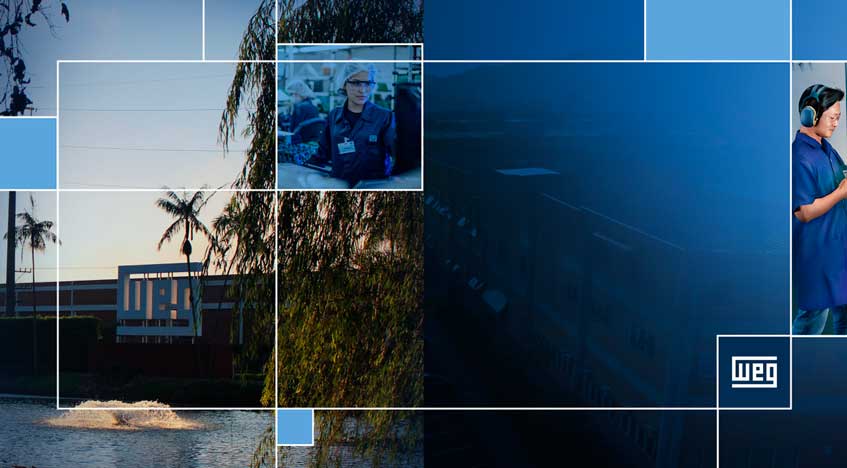As a way of reaffirming its commitment to sustainability, WEG is a voluntary signatory of the Sustainable Development Goals (SDG), an initiative created by the United Nations, which proposes coordinated global action between society as a whole - private sector, governments, civil society, among others - in order to achieve the SDGs which are split into 17 goals and 169 targets that should be achieved by 2030. Learn more here (https://nacoesunidas.org/pos2015/agenda2030/).
Sustainable development means to try meeting the needs of the current generation without affecting the ability of future generations to meet their own needs. Therefore, compliance to SDG helps WEG to align its sustainability strategy. Membership also strengthens WEG's approach and engagement with challenges and opportunities related to sustainable development.
"This collective cooperation is fundamental to promote significant impacts on sustainable development for the society. WEG understands the importance of such initiatives as well as its role and responsibility as a company. The decision to be a signatory is aligned with sustainability actions within a global agenda, sharing the best practices that have been already implemented in the company. On the other hand, we may follow other initiatives that can guide us and then report on the progress we have made about these goals", says Hilton José da Veiga Faria, HR and Corporate Affairs Director.
WEG Initiatives
We carry out several internal actions and others in partnership with stakeholders that are aligned with the Sustainable Development Goals, such as:
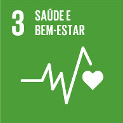
Ensure healthy life and promote well-being for all, in all ages
The promotion of good health and best practices for the well-being and quality of life of our employees is offered through various programs and actions, including: Medical Assistance, Health Programs for chronic diseases; Health campaigns. Through internal programs and processes, which address different topics related to safety at the workplace, the company promotes the awareness and prevention of accidents at the workplace. Some of the programs and processes include:
Safety Principles at the Workplace and Traffic
WEG Hearing Conservation Program - PWCA
WEG Safety and Ergonomics Program - PWSE
Emergency Teams - Brigade
Internal Commission for the Prevention of Accidents - CIPA
Gym at the workplace
Health and Safety Committee
Investment in Security in 2017:
Investment in adequacy of machinery and equipment 2017: R$ 3.2 million
Investment in PPE: R$ 9.4 million
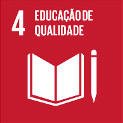
Ensure inclusive, equitable and quality education and promote learning opportunities for all along the life.
For continuous development of its employees, WEG offers education and training programs that cover both technical and behavioral aspects. The education is also offered to the community in order to create job opportunities to start the career in the company as a young apprentice or trainee. Some of the programs include:
Scholarship: This program aims to provide financial support to employees for training in technical, college, MBA´s and language courses.
EJA (Youth and Adult Education): Since 2010 in partnership with SESI (Social Service for Industry), the program provides an opportunity for employees to improve their school education level free of charge. Up to 2017, 346 employees have graduated from elementary and high school in this program.
Professional Qualification for Production Operators (QPOP)
Number of Courses offered by this Program: 36
Coverage: Brazil, Mexico, India and China
Number of attendees until 2017: more than 30 thousand
Professional Qualification for Production Apprentices (QPAP): Created in 2010 to qualify people from the community who intend to join the company, the program focuses on meeting the needs of the company in production areas in different jobs or activities that require technical knowledge and/or expertise to operate equipment used in industrial processes.
Number of courses: 8 courses with 400 hours each
Number of apprentices trained until 2017: 789
CENTROWEG (apprentices): More than 3700 young people have been already trained at CENTROWEG, which annually graduates about 140 young students. The opportunity is given to the whole community and provides free training for teenagers from the age of 16.
Professional Qualification for Engineers and Technicians (QPET): This program was created with the purpose of providing knowledge for engineers and technicians working in technical, commercial and industrial areas. It also offers technical knowledge focused on what is required on the actual job, providing information about rotating electric machines and power and distribution transformers and qualify them to work with internal and external customers.
In-company postgraduate courses: These courses are carried out through agreements with Universities and Educational Institutions considered as reference in the area: UFSC - FURB SOCIESC - UTFPR - PUC-PR - ESAG - FEST and FGV-SP. The courses were already offered to approximately 727 employees through 28 in-company courses held in recent years.
Other indicators:
Average hours of training per employee in 2017: 116 hours
Investment in Training in 2017: R$ 28.9 million.
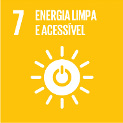
Ensure reliable, sustainable, modern and affordable access to energy for all.
Energy efficiency: We continuously promote the design of high efficiency product lines for the benefit of users by saving energy and reducing maintenance costs along the electric motor lifetime, in addition to contributing for lower environmental impact. The percentage of high energy efficiency products sold has increased about 10% in three years.
Renewable power sources: Solar power generation: With several plants starting operation, several supplies intended for power distribution and a major interest for investments in the sector, solar power generation has been growing. WEG also gives incentive programs for the installation of solar systems, such as the Solar Industry program, which is an initiative promoted together with the Federation of Industries of the State of Santa Catarina (FIESC) and Engie. Another program is the so-called PLUZ, an incentive to program Mato Grosso in partnership with Sebrae and Bank of Brazil.
Wind power generation: Making part of this new trend, WEG started in 2010 the first research on the subject as well as the design of generators and other equipment for wind power generation. Since 2014, when WEG supplied its first wind turbine package, 134 wind turbines (281.4 MW) were installed up to 2017.
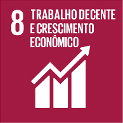
Promote inclusive, sustainable and economic growth, full and productive employment and decent work for all.
WEG Economic Growth: WEG has a track record of job creation and strong economic growth.
Our Net Operating Revenue (NOR) in 2017 amounted to R$ 9.5 billion, 1.7% higher than in 2016. Our diversification, technological modernization and innovation have impacted this achievement.
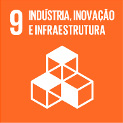
Build resilient infrastructures, promote inclusive and sustainable industrialization and innovative ways
At WEG, all ideas are organized and analyzed through PWQP (WEG Quality and Productivity Program), which is formally conveyed by the following programs: Specific Targets (PME), Standardization (PAN), Health and Safety (PSS), Continuous Improvement (PMC), Environment (PMA) and Technological Development (PDT).
The Technological Development Program (PDT) brings together innovation projects and targets for new products and processes. From the Technological Strategic Planning various projects are defined, which will be part of the programs. As a result, among other things, we have increasingly stepped into Industry 4.0, providing solutions both for our manufacturing process and for products and services.
Number of patents in 2017: 155.7% higher than previous year.
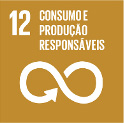
Ensure sustainable production and consumption standards
Our environmental management is based on preventive measures against environmental challenges, aiming at protecting the nature, where we invest in technologies and in continuous improvement of processes through the establishment of environmental goals and targets.
Energy Management: We have an energy efficiency program, and one of our plants is certified by ISO 50001 (Energy Management Systems).
In Brazil, the production plants taking part of Energy Efficiency Program have targets for the reduction of electricity consumption.
Carbon Emission Management: We conduct our annual carbon emission inventory, which is intended to quantify emissions, in addition to allow strategies to improve emissions management and then reduce environmental impact.
Water Management: We manage water resources and conduct best practices of water reuse, resulting is savings of 151,121 m³ of water until 2017. This amount would be enough to supply the consumption of 513 families for a year.
Waste Management: We work on waste management, trying to generate greater efficiency and lower environmental impact. In 2017, 39.6% of the waste generated was reused internally, 30.9% were sent to companies that promote recycling and 28.7% were sent to industrial landfill.

Take urgent actions to avoid climate change and related impacts.
Carbon emission reduction: We improve internal processes to reduce our impact on carbon emissions. As an example, we have the energy efficiency initiative, which has an important impact in this aspect due to the emissions as a result of consumption of electricity accounts for approximately 75% of our emission greenhouse gases.
Reducing Emissions from Customers: As part of our business strategy, we have developed technologies for customers to improve energy efficiency with short-term returns, the generation of renewable energy and the reduction of electricity consumption and the reduction of greenhouse gases.
Solutions: Solar and wind power generation, hydroelectric power plants, biomass, industrial system modernization.
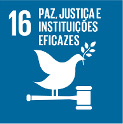
Promote peaceful and inclusive societies for sustainable development, provide access to justice for all, and build effective, accountable and inclusive institutions at all levels.
We work continually on our processes and policies to avoid any kind of corruption or practices of harmful acts in our business relations with the market. We have established a Policy to prevent and combat corruption and other harmful acts, which represents a synthesis of the company's existing guidelines and forms a set of internal integrity, auditing, prevention and anti-corruption mechanisms.
In 2016 a prevention and anti-corruption training was carried out, which was extended to the Board of Directors, Executives of our overseas subsidiaries and Business Units in Brazil, sales departments, supply chain, and employees who have interactions with public institutions. The training was conducted in three languages, where 2766 employees were trained, 2277 in Brazil and 489 abroad.

Strengthen the ways of implementation and promote the global partnership for sustainable development
We actively participate in several Associations, attending simultaneously different forums (Working Groups, Committees, Boards, Committees and Boards of Directors).
About Sustainable Development Goals
In September 2000, 189 nations signed an agreement to reduce extreme poverty and other social problems. This initiative eventually led to the creation of the Millennium Development Goals (MDGs), eight goals to be achieved by 2015.
In September 2015 the goals were updated and became the Sustainable Development Goals (ODS), which incorporated new, broader and more inclusive goals, addressing the interconnected elements of sustainable development: economic growth, social inclusion and protection of the environment.
